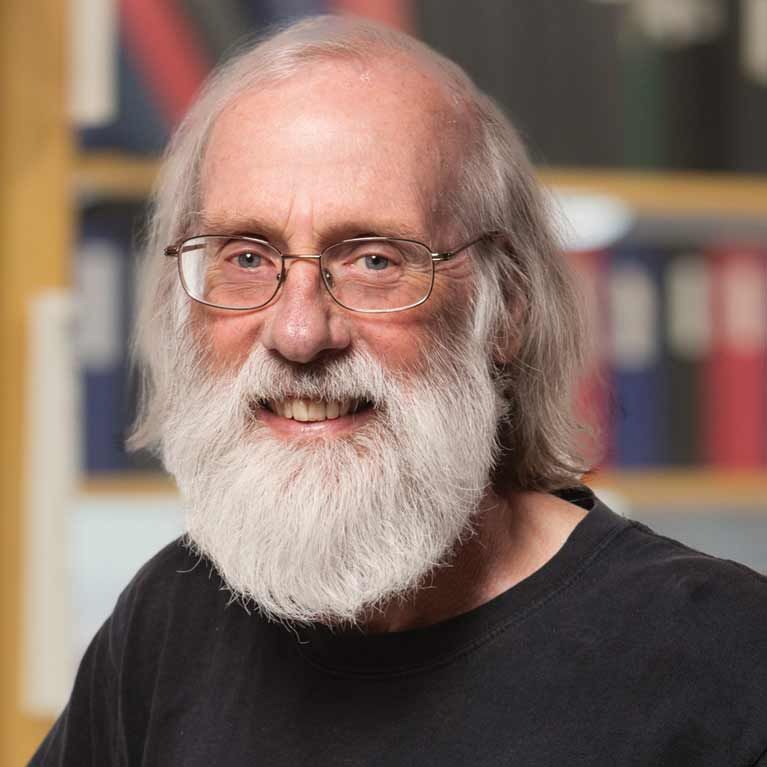Three Oncology Researchers Share Tang Prize
Three oncology researchers whose discoveries have advanced the field of targeted therapies in cancer care are jointly being awarded the 2018 Tang Price in Biopharmaceutical Science, which will be presented during a ceremony on September 21 in Taipei, Taiwan.
Tony Hunter, PhD

Tony Hunter, PhD
Three oncology researchers whose discoveries have advanced the field of targeted therapies in cancer care are jointly being awarded the 2018 Tang Prize in Biopharmaceutical Science, which will be presented during a ceremony on September 21 in Taipei, Taiwan.
The winners are Brian J. Druker, MD, director of the Knight Cancer Institute and the JELD-WEN Chair of Leukemia Research at Oregon Health Sciences University in Portland; John Mendelsohn, MD, president emeritus at The University of Texas MD Anderson Cancer Center in Houston; and Tony Hunter, PhD, the Renato Dulbecco Chair in Molecular and Cell Biology Laboratory at the Salk Institute in La Jolla, California. Druker and Mendelsohn are Giants of Cancer Care®award winners.
Hunter is being honored for his discovery of tyrosine phosphorylation, which led to a better understanding of selectivity and growth of cancer cells and contributed to the development of the tyrosine kinase inhibitor class of anticancer therapies. He also is credited with discovering theSrconcogene.
Brian J. Druker, MD

Brian J. Druker, MD
In a statement, Hunter commented on how he felt at winning the Tang prize: "I am honored to receive this award, which I share with the many other dedicated cancer researchers who have together contributed to the development of tyrosine kinase inhibitors."
Druker led the development imatinib (Gleevec) for patients with chronic myeloid leukemia, one of the first and most successful molecularly targeted anticancer therapies. Druker’s initial invention garnered mainstream attention when it was featured on the cover ofTimemagazine and has inspired more than 50 similar precision therapies.
John Mendelsohn, MD

John Mendelsohn, MD
“I am honored to receive this distinguished award from the Tang Prize Foundation,” said Druker in a statement. “This award represents hope for patients and their families, and reminds us that we can create effective and non-toxic therapies. Our team will continue to help advance science so that, one day, what we have seen with Gleevec will be possible for all patients with cancer.”
Mendelsohn’s research forged the way for a now universally accepted concept of anti-receptor therapy for targeting key cell signaling pathways as a form of cancer treatment. He contributed to the discovery of the anti-EGFR antibody cetuximab (Erbitux), which the FDA has approved for treating colorectal cancer and head and neck cancer.
“It’s an honor to be recognized by the Tang Foundation with colleagues who opened such an important chapter of cancer research,” Mendelsohn said in a statement. “By highlighting the vital connection between basic research and progress in the clinic, the Tang Foundation encourages the progress we need in scientific, translational and clinical research to continue to improve cancer treatment.”
The award winners will share a cash prize and research grant of approximately $1.5 million, according to the Tang Foundation. The program, which launched in 2012 by Taiwanese entrepreneur Samuel Yin, consists of 4 categories in which biennial awards are bestowed.
Navigating ESR1 Mutations in HR-Positive Breast Cancer With Dr Wander
October 31st 2024In this episode of Targeted Talks, Seth Wander, MD, PhD, discusses the clinical importance of ESR1 mutations in HR-positive metastatic breast cancer and how these mutations influence treatment approaches.
Listen
No Improvement With Durvalumab vs Cetuximab in Advanced HNSCC
January 9th 2025The NRG-HN004 trial showed that durvalumab did not improve outcomes vs cetuximab in locoregionally advanced head and neck squamous cell carcinoma undergoing radiotherapy with contraindications to cisplatin, leading to early trial closure.
Read More
Navigating ESR1 Mutations in HR-Positive Breast Cancer With Dr Wander
October 31st 2024In this episode of Targeted Talks, Seth Wander, MD, PhD, discusses the clinical importance of ESR1 mutations in HR-positive metastatic breast cancer and how these mutations influence treatment approaches.
Listen
No Improvement With Durvalumab vs Cetuximab in Advanced HNSCC
January 9th 2025The NRG-HN004 trial showed that durvalumab did not improve outcomes vs cetuximab in locoregionally advanced head and neck squamous cell carcinoma undergoing radiotherapy with contraindications to cisplatin, leading to early trial closure.
Read More
2 Commerce Drive
Cranbury, NJ 08512
All rights reserved.